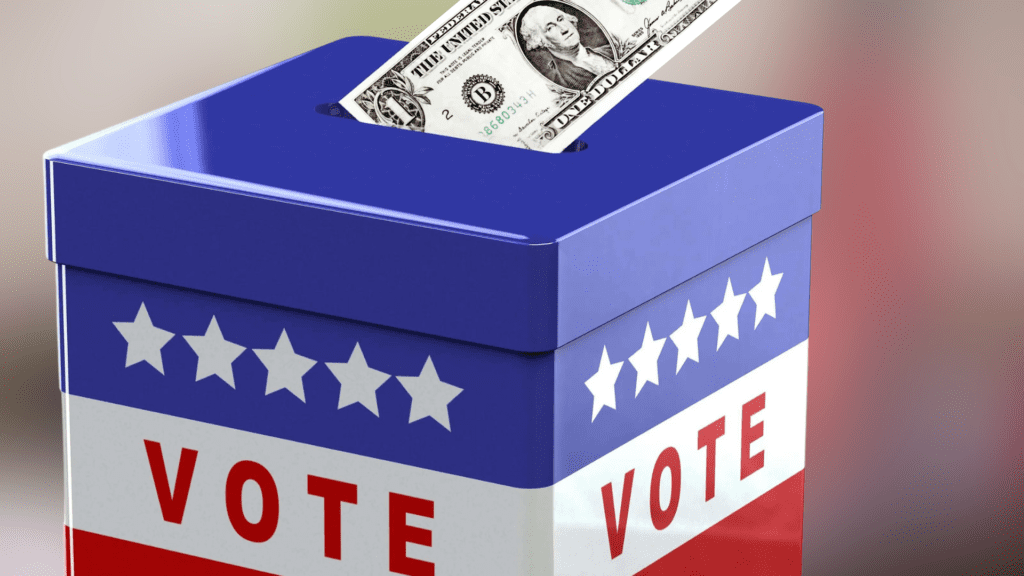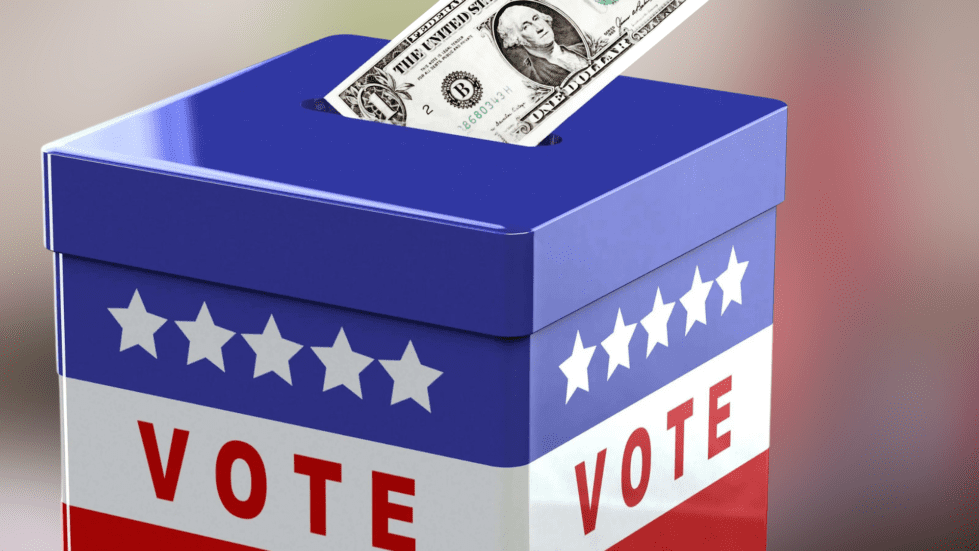

(Getty Images)
With weeks to go before the first votes are cast in Delaware’s 2022 election cycle, advocates for government transparency are pushing for better campaign finance reporting.
Common Cause Delaware, a nonprofit group that lobbies for open, honest and accountable government, has called for more frequent and detailed reporting of campaign funds collected when candidates run for office.
“It’s common knowledge that people work for the person who pays them,” said Claire Snyder-Hall, executive director of Common Cause Delaware. “That’s how it often works in politics as well. Studies show that elected officials are more likely to govern in accordance with what their donors want than with public opinion.”
Under current law, campaigns are only required to file three spending reports: at the end of each year, 30 days prior to an election, and eight days prior to an election. If the candidate has a primary election, they’d file five reports.
Snyder-Hall wants to keep those reports, but also require candidates to file four additional quarterly reports.
“When voters are trying to decide who to vote for, one thing they can do is look at campaign finance reports to see who’s funding the candidate,” she said. “If a candidate receives a lot of money from police unions, for example, or teachers unions, that can say a lot about what they stand for, and voters have a right to know that information.”
Because everyday voters don’t follow campaign finance reports closely, having additional data and more time to disseminate it before an election will go a long way in improving transparency, Snyder-Hall said.
“It’s only 30 days until the election, and so that doesn’t leave a lot of time for people to be able to learn and digest that information,” she said. “Whereas if it was quarterly reporting, they would know earlier.”
Having quarterly reports would also level the playing field between candidates who have primary elections and those who don’t, she said.
For example, in Delaware’s 6th Senate District, there are two Democratic candidates: Jack Bucchioni and Russ Huxtable.
They are required to file their reports 30 days and 8 days before the Sept. 13 primary election, but Republican candidate Rep. Steve Smyk, who doesn’t have a primary challenger, won’t have to file his reports until 30 days and 8 days before the Nov. 8 general election.
“So voters now know who’s funding Russ Huxtable and Jack Bucchioni, but they don’t have any idea who’s funding Steve Smyk, because he doesn’t have a primary opponent,” Snyder-Hall said. “That gives him an advantage.”
Another way to increase transparency in elections is by requiring campaign contributors to reveal their employer and occupation when they donate to a campaign, said John Flaherty, board member with the Delaware Coalition for Open Government.
That would increase transparency in two ways, Flaherty said. First, it would help identify instances where companies ask employees to donate to a particular candidate and reimburse them for their donation. That’s a way for companies to circumvent campaign finance laws that limit the amount one can donate to a campaign.
That’s not unprecedented in Delaware.
In 2011, Christopher Tigani, the former president of a major Delaware beer distributor, pleaded guilty to illegally funneling more than $200,000 in campaign donations by compelling employees, family members and friends to make donations, then reimbursing them.
The other way it would increase transparency, Flaherty said, is by showing donor trends. If a candidate has numerous donations from workers in the fossil fuel industry, for example, one could deduce that those employees feel that candidate is more friendly to fossil fuels.
“The public can then decide for themselves whether, in fact, that donation was meant for the candidate, or whether it was meant to help propel the interests of the company,” Flaherty said. “I think the more disclosure we have, the better it is when it comes to campaign finances here in Delaware.”
Donors are already required to reveal their employer and occupation when they donate to candidates for federal office and in 38 states across the country.
When a bipartisan bill was introduced in Delaware’s General Assembly this year that would have required just that, it died in the House Administration Committee after House Speaker Pete Schwartzkopf, D-Rehoboth Beach, raised objections.
“I don’t support this bill and I’ll tell you why,” Schwartzkopf said. “I don’t know what the problem you’re trying to solve is.”
He said pass-through donations like the ones Tigani pleaded guilty to are already illegal and House Bill 366 wouldn’t have stopped them from happening.
The bill’s sponsor, Rep. Eric Morrison, D-Glasgow, disagreed.
“I think it quite possibly could have helped catch that,” Morrison said. “When you’re looking through these reports, you will be able to see that, ‘Hey, this one employer, people from their company are donating over and over again, especially in $600 checks,’ which we don’t often see.”
Schwartzkopf said he also worries that in such a divisive political climate, employers could seek retribution against employees “because they donated to the wrong candidates.”
“There’s no protection for those people,” Schwartzkopf said. “They could be fired the very next day.”
Flaherty, Snyder-Hall and Morrison all say that’s bupkis.
“That doesn’t really make sense because you can already do that,” Snyder-Hall said. “If you were a business owner and you wanted to see who your employees were donating to, you know who they are, so you could just put their names in and search to see if they donated.”
Snyder-Hall said it’s no surprise the bill didn’t make it across the finish line.
“I believe it’s the wealthy interests that want to maintain their advantage and candidates who are receiving big money from certain industries that they don’t want publicized,” she said.
Rep. Danny Short, R-Seaford, agreed with Schwartzkopf.
“There’s a whole host of issues you have to follow up on with regard to the checks so you can make sure you comply with the current situation,” Short said. “I don’t know that it helps the cause of those that are trying to run any election, irrespective of who they are, irrespective of the party, to publish that information.”
Rep. Tim Dukes, R-Laurel, said he thinks it would be intrusive to have donors include their employer information.
“On the other hand, the person who challenges [that donation] could remain anonymous,” Dukes said. “I don’t think you should have it both ways, in my opinion.”
The bill was tabled in committee and never brought back for a vote. Because the legislative session ended June 30, the bill will need to be reintroduced in 2023.
“We’ll have to bring it up again next year,” Flaherty said.


Charlie Megginson covers government and politics for Delaware LIVE News. Reach him at (302) 344-8293 or [email protected]. Follow him on Twitter @cmegginson4.
Share this Post


